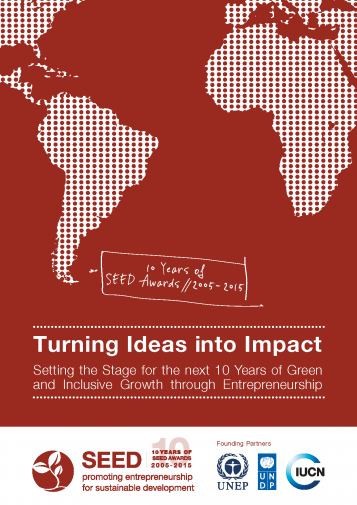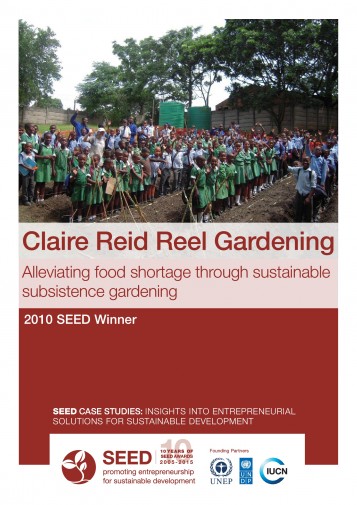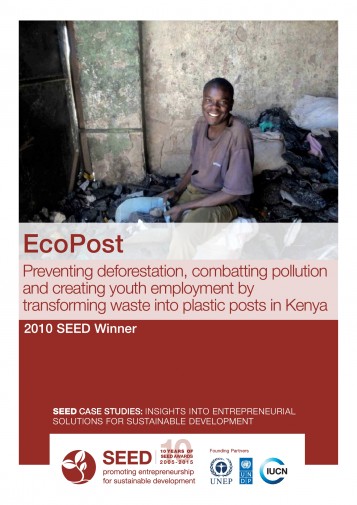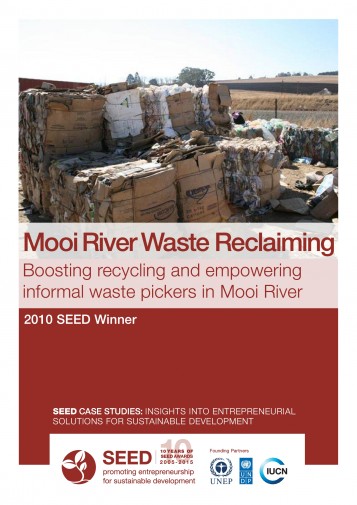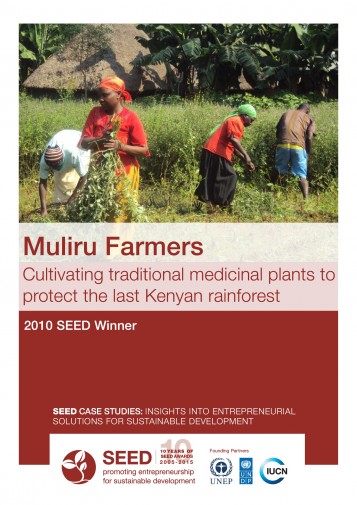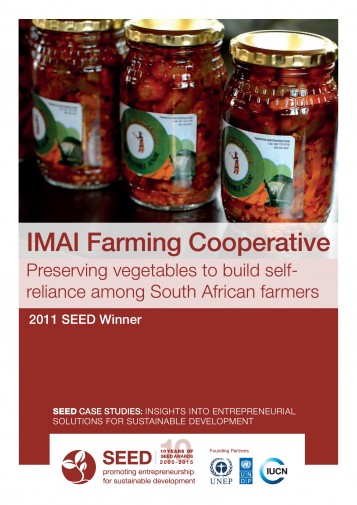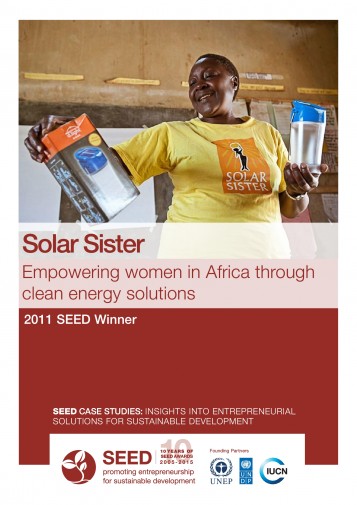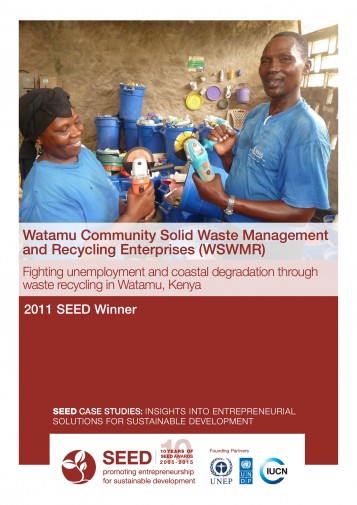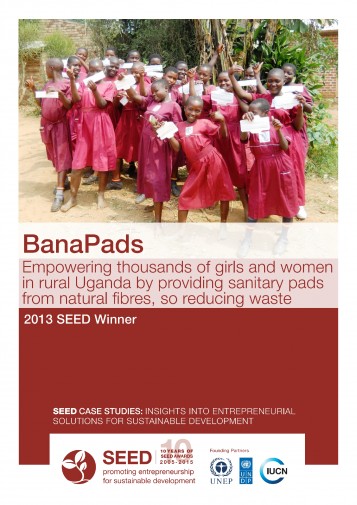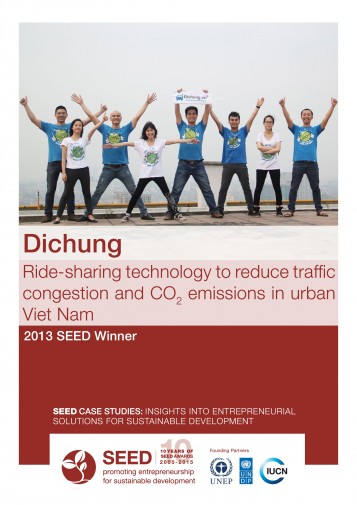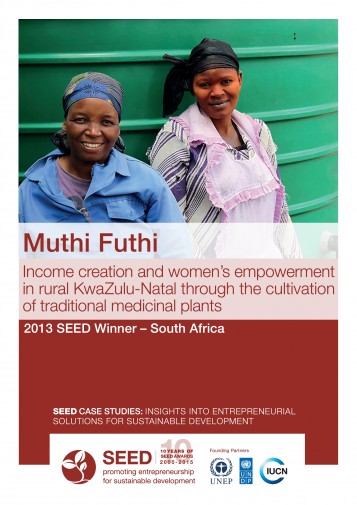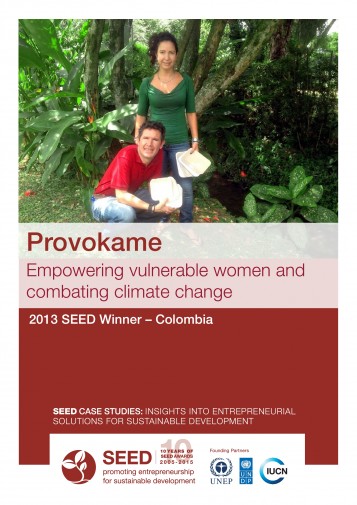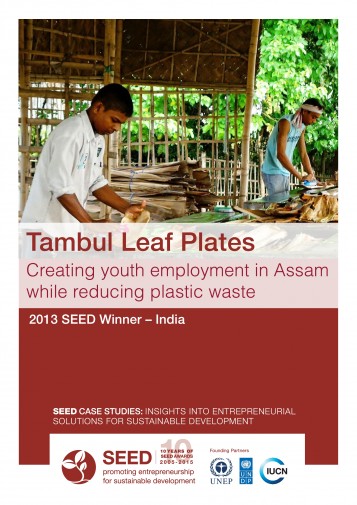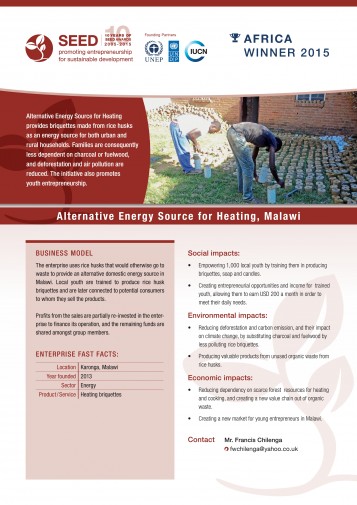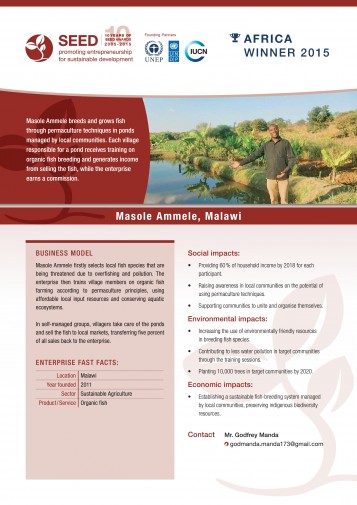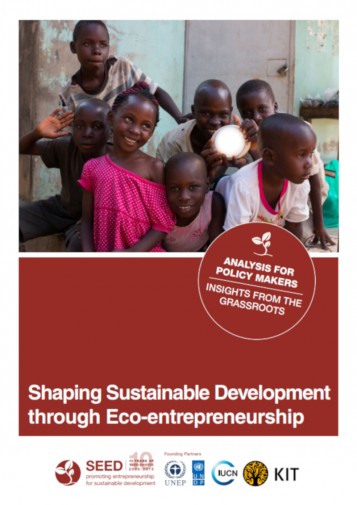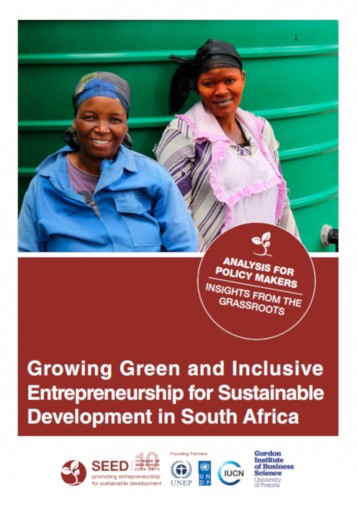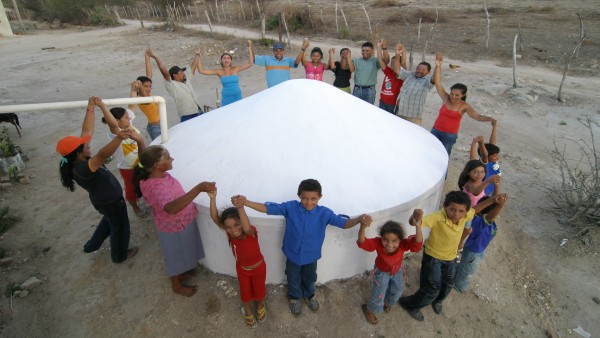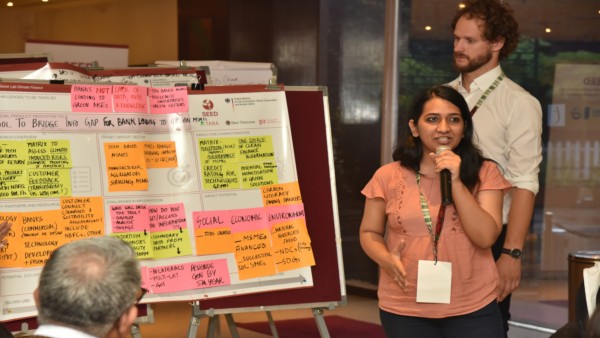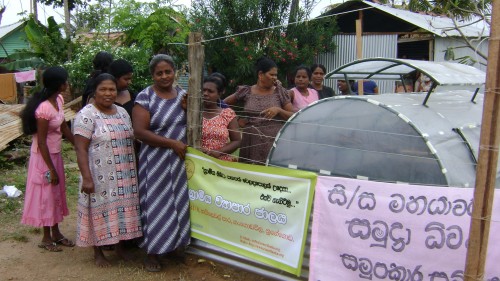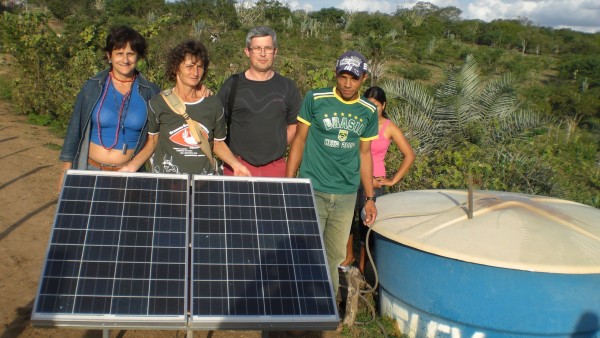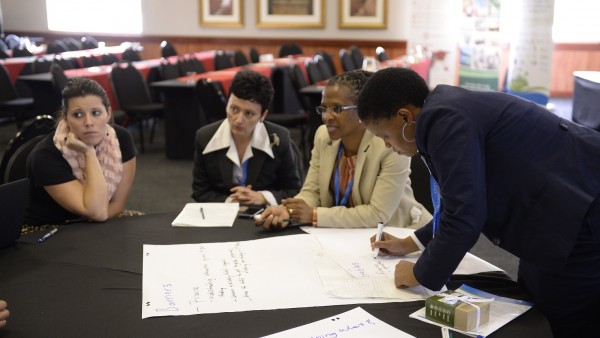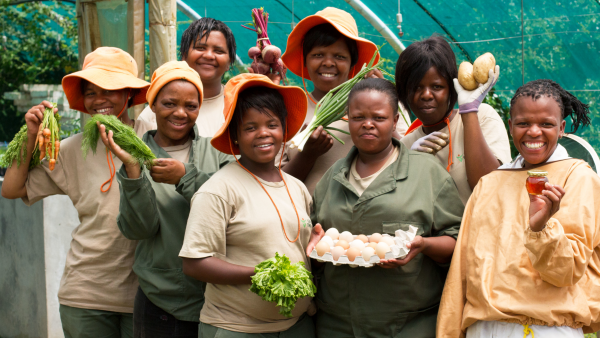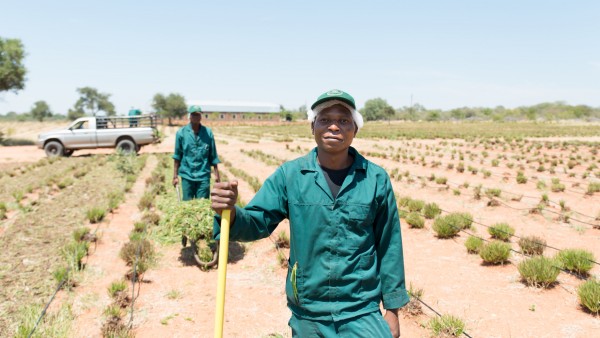Turning Ideas into Impact: SEED 10 Year Flagship Report
Published: 08 September 2015 Carolin Ehrensperger, Jana Rudnik, Jona Liebl, Mirko Zürker
Over the last ten years SEED has supported more than 200 social and environmental enterprises enabling collaboration and peer learning. SEED’s inspiring success story and significant key lessons have now been captured with a 10 Year Flagship Report. Read more
Case Study: Claire Reid Reel Gardening
Published: 07 September 2015
Reel Gardening addresses food insecurity among low-income household and children by offering bio-degradable paper strips embedded with organic seeds that can be used by all to produce a wide range vegetables and herbs. Read more
SDGs:







Case Study: Eco Post
Published: 07 September 2015
EcoPost produces posts and building materials from recycled plastic waste in Nairobi. This reduces pollution, preserves forests, and decreases greenhouse gas emissions. Read more
SDGs:







Case Study: Mooi River Waste Reclaiming
Published: 07 September 2015
Mooi River Waste Reclaiming contributes towards climate change mitigation, conservation, and reduction of air, land and marine pollution by collecting, compacting and selling recyclable waste. Read more
SDGs:











Case Study: Muliru Farmers
Published: 07 September 2015
Muliru Farmers establishes sustainably-farmed supplies of medicinal plants and raises awareness about forest management which reduces the pressure on Kenya’s last remaining rainforest. Read more
SDGs:









Case Study: IMAI Farming Cooperative
Published: 07 September 2015
IMAI reduces food waste and creates income opportunities by producing and marketing vegetable atchar pickle made from surplus horticultural produce. Read more
SDGs:











Case Study: Solar Sister
Published: 07 September 2015
Solar Sister addresses energy poverty in rural Uganda, Nigeria And Tanzania by providing clean energy products to off-grid communities, while at the same time combatting climate change. Read more
SDGs:











Case Study: Watamu Community Solid Waste Management and Recycling Enterprises
Published: 07 September 2015
Watamu Solid Waste Management and Recycling helps conserve coastal and marine biodiversity by recycling plastic and glass waste. Read more
SDGs:







Case Study: BanaPads
Published: 07 September 2015
BanaPads produces affordable, effective and hygienic sanitary pads for women in Uganda, made from the natural fibres of banana plant trunks that are an abundant organic waste in agriculture. Read more
SDGs:









Case Study: Dichung
Published: 07 September 2015
Dichung reduces urban traffic congestion, fuel consumption and in turn GHG emissions by providing ride-sharing opportunities for city residents. Read more
SDGs:







Case Study: Muthi Futhi
Published: 07 September 2015
Muthi Futhi protects local biodiversity by cultivating and processing endangered indigenous medicinal plants. Read more
SDGs:









Case Study: Provokame
Published: 07 September 2015
Provokame produces biodegradable plates out of natural fibre and seeds and recycles paper; this reduces pollution from polymer plates and decreases greenhouse gas emissions. Read more
SDGs:













Case Study: Tambul Leaf Plates
Published: 07 September 2015
Tambul Leaf Plates has generated employment or additional income for 3,000 rural community members while reducing pollution from plastic and polystyrene foam plates by over 100 tonnes. Read more
SDGs:











Enterprise Brief: Alternative Energy Source for Heating
Published: 06 September 2015
Alternative Energy Source for Heating provides briquettes made from rice husks as an energy source for both urban and rural households. Families are consequently less dependent on charcoal or fuelwood, and deforestation and air pollution are reduced. The initiative also promotes youth entrepreneurship. Read more
SDGs:









Enterprise Brief: Masole Ammele
Published: 06 September 2015
Masole Ammele breeds and grows fish through permaculture techniques in ponds managed by local communities. Each village responsible for a pond receives training on organic fish breeding and generates income from selling the fish, while the enterprise earns a commission. Read more
SDGs:









Enterprise Brief: P.E.A.C.E. - Thinana Recycling Cooperative
Published: 06 September 2015
P.E.A.C.E. - Thinana Recycling Cooperative engages with local communities in the implementation of a waste recycling network in Senwabarwana, Limpopo Province. The enterprise trains waste collectors and has established a purchasing scheme and collection point network for waste collected in the semi-urban community and its rural environment. Read more
SDGs:









Shaping Sustainable Development through Eco-entrepreneurship
Published: 01 September 2015 Amélie Heuër, Bart Slob, Helena Posthumus, Rainer Agster, Roger Bymolt
Small, micro and medium enterprises (SMMEs) that pursue a triple bottom line approach offer one concrete means of achieving this shift to a Green Economy. This report highlights grassroots eco-enterprises, the types of impact they are achieving and the challenges and opportunities they face. Read more
SDGs:









Growing Green and Inclusive Entrepreneurship for Sustainable Development in South Africa
Published: 01 September 2015 Amélie Heuër, Dr. Mira Slavova, Rainer Agster
SEED has worked closely with the Gordon Institute for Business Science in 2015 on a study that integrates for policy-makers the findings of five case studies in South Africa. As concerns with accomplishing SDG goals have become inextricably lodged within social and policy debates, scholars studying SMMEs have developed understandings of enterprises embedded within complex institutional environments. The current study has looked how SEED Winners in South Africa progress in achieving their triple bottom line objectives, taking into account challenges they encounter along the way, and success factors that have enabled them to move forward. Read more
SDGs:







Building Inclusive Value Chains
Published: 27 August 2015 Carolin Ehrensperger, Mareike Grytz
How can people living at the base-of-the-pyramid (BoP) be integrated into global value chains and improve their livelihood on a long-term perspective? One answer clearly is: by fostering Inclusive Business Models (IBM). Read more
SDGs:











The next challenge for impact investing: Scaling up support to early stage social enterprises
Published: 13 August 2015 Bertil van Vugt, Mirko Zürker
The growth and success of green and inclusive business models with high impact potential is central to the challenges many emerging economies are facing. Read more
SDGs:







Rural Enterprise Network, a SEED Story from Sri Lanka
Published: 06 August 2015
The Rural Enterprise Network (REN) is a social marketing organization established in 2002 by networking rural farmers and producers in South of Sri Lanka. Their concept was developed based on the observation that access to markets and other BDS was lacking in rural micro-business interventions in the country. The REN model addresses these gaps, providing marketing-related services to increase market access for poor small-scale producers. The enterprise has won a SEED Awards in 2010. Read more
SDGs:





Water for Life – innovative and entrepreneurial ways of storing water in semi-arid regions of Brazil
Published: 30 July 2015 Carolin Ehrensperger, Daniele Cesano, Thais Corral
Access to water is not only about meeting basic human needs; it is critical to sustainable development, too. Read more
SDGs:













SEED South Africa Symposium 2015
Published: 30 July 2015
On May 27th the SEED South Africa Symposium 2015 was held in Johannesburg in cooperation with the 3-day International Conference hosted by the University of South Africa on “Innovation for Sustainability under Climate Change and Green Growth/Economy”. Read more
SDGs:

Taking action and inspiring change towards food security not only on Mandela Day, but every day
Published: 18 July 2015 Mirko Zürker, Rest Kanju
“It’s in your hands now”: with this sentence, Nelson Mandela passed on his legacy to make a difference in the world to a new generation at his 90th birthday. Read more
SDGs:








